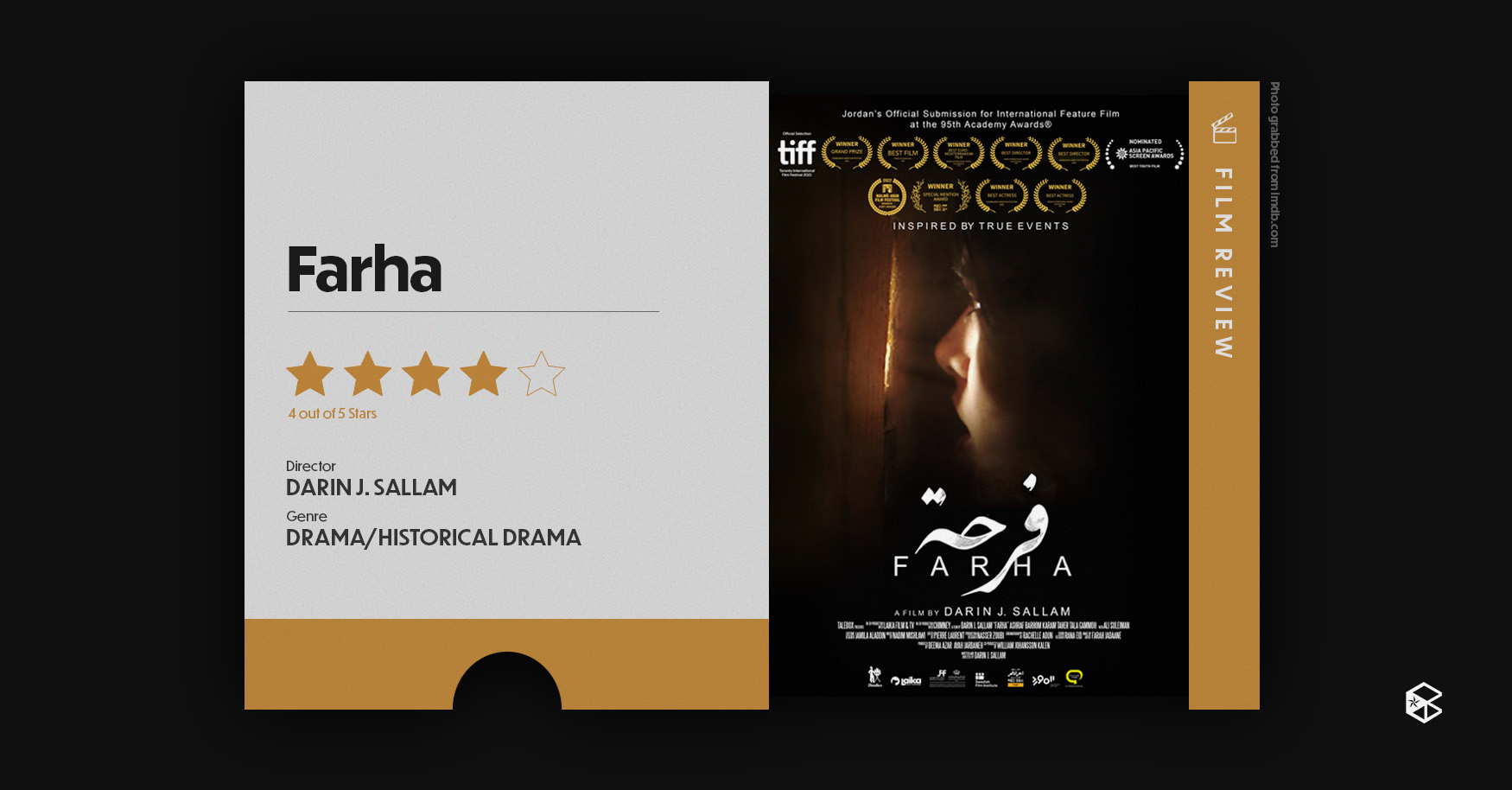Farha is not your typical coming-of-age story, as it follows a 14-year-old Palestinian girl whose maturity unfolds by witnessing Israel’s brutality through a small crack in a pantry storage. Released on Dec. 8, 2022, this film, which is set during the Nakba (Catastrophe) or the 1948 displacement of Palestinians from their homeland, remains a timely and relevant piece that glimpses into the beginning of the military occupation that continues to loom over the Middle East.
Directed by Darin J. Sallam, Farha garnered several international awards, including Best Youth Feature Film at the Asia Pacific Screens Awards and Best Euro-Mediterranean Film at the Aswan International Film Festival as it dealt with women’s issues. With its subsequent Netflix release, however, it did not escape the criticism of Israeli officials as it portrays the violence of the Israeli soldiers towards the Palestinians.
Every girl has a dream
Unlike girls her age, Farha (Karam Taher) dreams of pursuing an education in the city akin to her best friend Farida (Tala Gammoh). Farha repeatedly asks her father, Abu Walid (Ali Suliman), to register her for school but he refuses several times until a visiting relative finally convinces him.
As Farha and Farida rejoice over the news of her schooling, the sounds of bombs shatter the tranquility of their unnamed town—the onset of an Israeli military attack. Farha’s dream, which laid the plot of the film and her early motivation, was tragically lost to the unseen progression of the film.
“I will come back to get you”
As the two run to the attack’s epicenter, Farha is faced with the option of fleeing to the city but decides to stay with her father. In turn, Abu takes her back home and arms himself with a rifle before locking her in the pantry storage—promising to return.
Whether in film or real life, many Palestinian parents are confronted with these harsh choices: watch their land fall into the hands of the Israeli military or stay with their children. Regardless of the choice they make, it propels the reality that there are no armed forces that could protect them from this situation.
Despite being a historical narrative, it did not explicitly introduce major characters that drew the beginning of the Nakba. The British army was seen leaving town, but it was not revealed that they declared the Balfour Agreement that created the new Israel state in Palestine.
Though the film was rather slow-paced, it permits the audience to take in some hidden details spread throughout the film, like the scene of the woman whose house key was found inside her clothing—a representation of hope borne by many displaced Palestinians that they will someday return to their homes.
Where our eyes cannot see
The violence the film presented is relatively small scale, but it evokes a wider realization that a much larger violence is unfolding beyond the viewer’s frame of reference. Moreover, the film cleverly uses the technique of showing Farha’s perspective through a limited view, perhaps a metaphor of how a glimpse of the realities of Palestinians bursts the bubble of ignorance.
In contrast to the young girl in the beginning of the film, Farha changed over her brief stay at the pantry by witnessing the tragic end of her people—a symbolic moment of transformation enough to earn a spot in your watch-list.
Overall, Farha is an artistic retelling of the conflict that dates back to history. It evokes the feeling of empathy for the current living state of Palestinians, and exposes the truth of the Israeli army’s brutality that is often shadowed by widespread media propaganda.
Although Farha might not be the best place to understand the international basis of the Israel-Palestine situation, it doesn’t fall short in depicting the catastrophe that brought decades of oppression.
You can watch this timely piece on Netflix.


